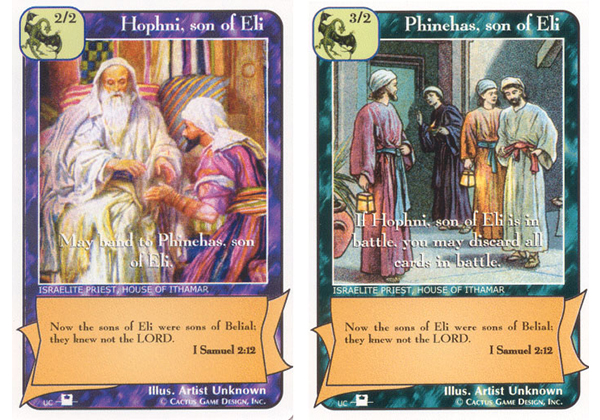There is an old fable of the blind men and the elephant. A group of learned blind men of India have heard of the magnificent elephant and decide they must experience it for themselves. They come across an elephant and due to their blindness, they begin to each feel a different part of the elephant. One man feels the rough skin of its large leg and determines that elephants are basically trees. Another feels the trunk and decides that an elephant is rather similar to a snake. Each of them feels a different attribute of the elephant and come to very different and very incorrect conclusion on the nature of an elephant.
John Godfrey Saxe wrote a poem of this fable that includes these lines:
“And so these men of Indostan, disputed loud and long,
Each in his own opinion, exceeding stiff and strong,
Though each was partly in the right, and all were in the wrong!”
Each man had a little bit of truth but made assumptions to fill in the gaps. Their bad assumptions led them to ridiculous beliefs. Of course, you know where I am going with this, we do the same thing with God. We understand a little bit of one attribute and without realizing, we start to make all manner of assumptions on the nature of God. What makes this worse is that we do this in spite of the fact that God has clearly revealed Himself to us in Scripture. Now, let’s look at 3 assumptions we make about God revealed in the story of Eli’s sons and illustrated by the Redemption cards based on that story. I don’t know about you, but Redemption is one of the reasons this story sticks out in my head so vividly since I have used these cards in various decks over the years.
Here is some context for where the story kicks off. This is way back in Israel’s history before the age of kings. Judges, priests, and prophets were the civil and spiritual guidance for the people. Eli was both judge and priest and was pretty good at what he did—except when it came to raising his sons. His two sons were also priests and being groomed to take over for Eli as he was getting on in years (by the way, priesthood was not a hereditary gig, one was supposed to be appointed to it). His sons, Hophni and Phinehas were…just the worst. In 1 Samuel 2:12-17 we read that they were blatantly abusing their priestly position and making a mockery of the sacrificial system. In verses 22-25, things get worse.
“Now Eli was very old; and he heard about everything that his sons were doing to all Israel, and that they slept with the women who served at the doorway of the tent of meeting. 23 So he said to them, “Why are you doing such things as these, the evil things that I hear from all these people? 24 No, my sons; for the report is not good which I hear the Lord’s people circulating. 25 If one person sins against another, God will mediate for him; but if a person sins against the Lord, who can intercede for him?” But they would not listen to the voice of their father, for the Lord desired to put them to death.
1 Samuel 2:22-25
We get it, Phinehas and Hophni two peas of a rather rotten pod. No wonder that Hophni’s special ability is to band to his bro. But did you catch verse 25? Why would they not heed the wise advice of their father—God prevented them so as to execute His justice against them. Wait a minute, Marc, are you telling me that God prevented Phinehas and Hophni from repenting! Can He do that? Is that fair? Doesn’t that negate the guilt of their unrepentant attitude? These are uncomfortable questions, but they reveal something profound about the assumptions we make about God and our nature.
Bad assumption #1: This isn’t fair—God owes everyone mercy or at least the chance to receive mercy. This is a bad assumption because when we start talking about being entitled to mercy in any sense, we are no longer talking about mercy by definition. You cannot owe someone mercy—it ceases to be mercy at that point. You can owe someone justice. That is what is going on here.
Bad assumption #2: Phinehas and Hophni are not guilty of their unrepentance. Absolutely not. There is no Scripture that declares that they or any other person on earth has ever been innocent of their sin by blaming God. They bear the full guilt of their actions. All of the language that describes their sin is clearly presented as the result of their attitudes and actions.
Bad assumption #3: God can’t be sovereign [have authority over the universe and all that is in it] over something like this. As hard as it is to wrap our heads around, verse 25 is as straightforward as it gets. The mystery is described well by the Westminster Confession—which is not Scripture, but succinctly sums up the ideas presented here and elsewhere in Scripture. It states that, “The almighty power, unsearchable wisdom, and infinite goodness of God so far manifest themselves in His providence, that it extendeth itself even to the first fall, and all other sins of angels and men; and that not by a bare permission, but such as hath joined with it a most wise and powerful bounding, and otherwise ordering, and governing of them, in a manifold dispensation, to His own holy ends; yet so, as the sinfulness thereof proceedeth only from the creature, and not from God, who, being most holy and righteous, neither is nor can be the author or approver of sin” (emphasis added). In other words, the mystery is that God is very much in control of the mess that Phinehas and Hophni created for themselves, but the guilt of their sin falls solely on their shoulders and not God’s.
Conclusion & Application
These are challenging things, but we can take comfort that even when the sin of mankind seems to make a mess of the world and our lives, God is still on the throne of the world and everything in it. He knows what He is doing, and most importantly, everything is working towards the ultimate end of the display of His glory. We will see that more in the next studies. For now, be hopeful and humbled by the fact that there will always be elements of God’s character and plans that we are incapable of fathoming. Lastly, don’t let assumptions get in the way of seeing how God displays His glory in the working out of His plan in His creation. God does not need us to save Him from what we think is a PR nightmare. He reveals Himself in Scripture and we ought to let it inform our understanding of Him instead of trying to understand His nature in the way that the blind men tried to understand an elephant.
To buy singles, sealed product, and other gaming supplies mentioned, please visit Three Lions Gaming!

